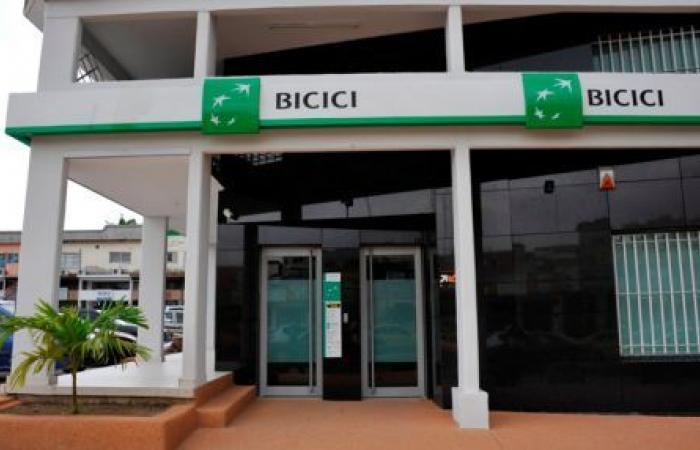(Agence Ecofin) – Despite the constraints linked to the economic situation, BICICI is counting on the continuation of a positive dynamic for the rest of the year 2024.
The International Bank for Commerce and Industry of Côte d’Ivoire (BICICI) is reporting growth for the first half of 2024.
With a net profit up 57.8%, amounting to 11.4 billion FCFA ($18.2 million), the bank whose shareholding has recently evolved, reinforced by the presence of Ivorian public institutions after the departure of the French BNP Paribas, continues to solidify its position on the local banking market where it occupies 9e place in terms of assets (4.2% market share).
This progression is driven by a drastic reduction in the cost of risk, which fell by 317.7% to 1.2 billion FCFA.
Net banking income (NBI), a key indicator of operational profitability, recorded an increase of 23.4% to stand at 31.9 billion FCFA. The bank attributes this increase to commercial vitalization as part of the implementation of its new strategic direction.
A new growth trend
This dynamic is part of a growth trajectory initiated in previous years. Since 2021, BICICI has shown a solid growth trend, in a banking environment marked by economic uncertainties and geopolitical tensions. The 2023 financial year had already recorded a GNP of 55.5 billion FCFA compared to 47.3 billion in 2022, the year of its repurchase by the consortium composed of the National Investment Bank (BNI), the National Social Security Fund ( CNPS), the Social Security Institution – General Retirement Fund for State Agents (IPS-CGRAE) and the Caisse des Dépôts et Consignations de Côte d’Ivoire (CDC-CI).
As for profits, they followed an upward trajectory, with a notable jump in 2023 where net profit reached 16.69 billion FCFA, an increase of 34.7% compared to 2022.
The balance sheet also shows an increase in net customer loans of 6.9%, crossing the mark of 507 billion FCFA at the end of the first half of 2024. However, this growth dynamic is offset by a drop in customer deposits, which fell by 8.6% over one year, and which contrasts with the increase of 19.4% observed in the first half of 2023 when deposits reached 784 billion FCFA. This decline is attributed to restrictive monetary conditions which could put pressure on the bank’s liquidity if the trend continues. BICICI did not provide further information on its balance sheet.
Fiacre E. Kakpo






